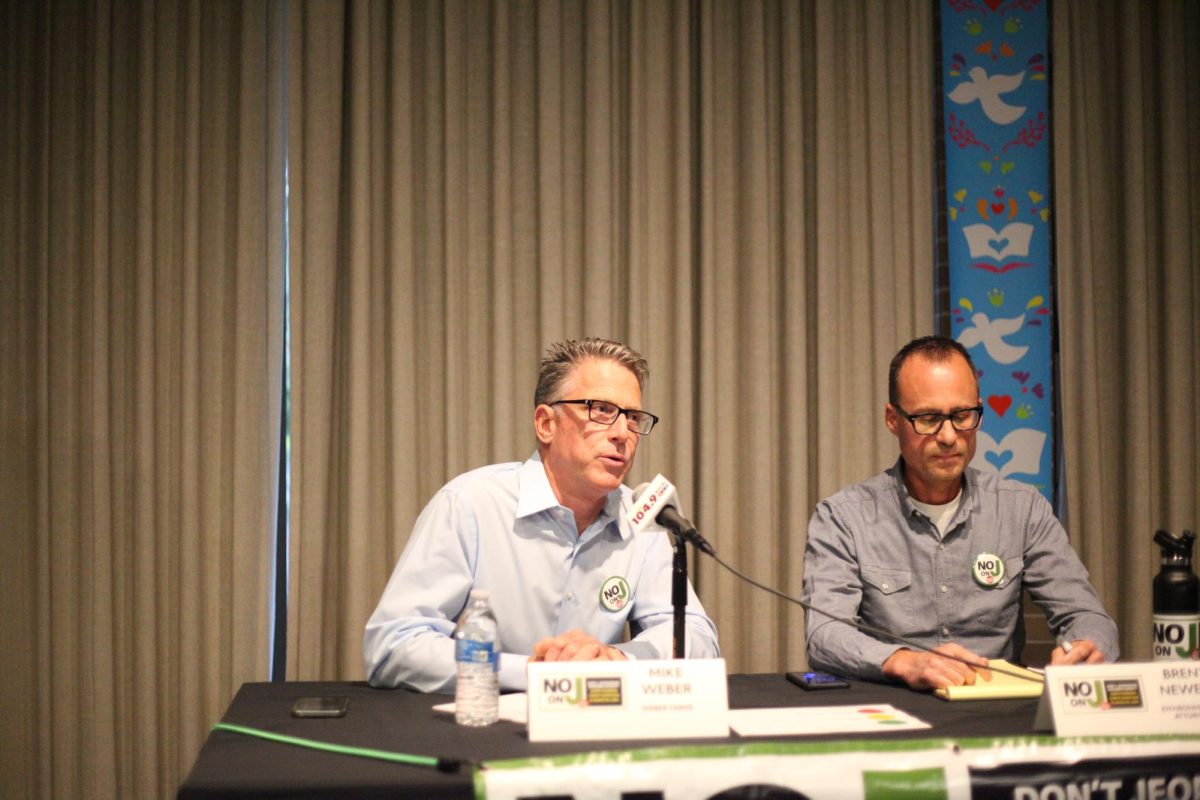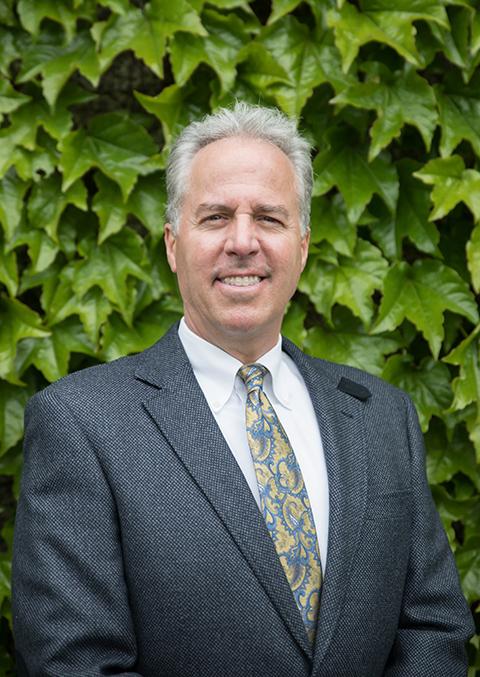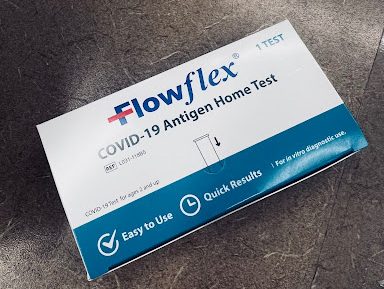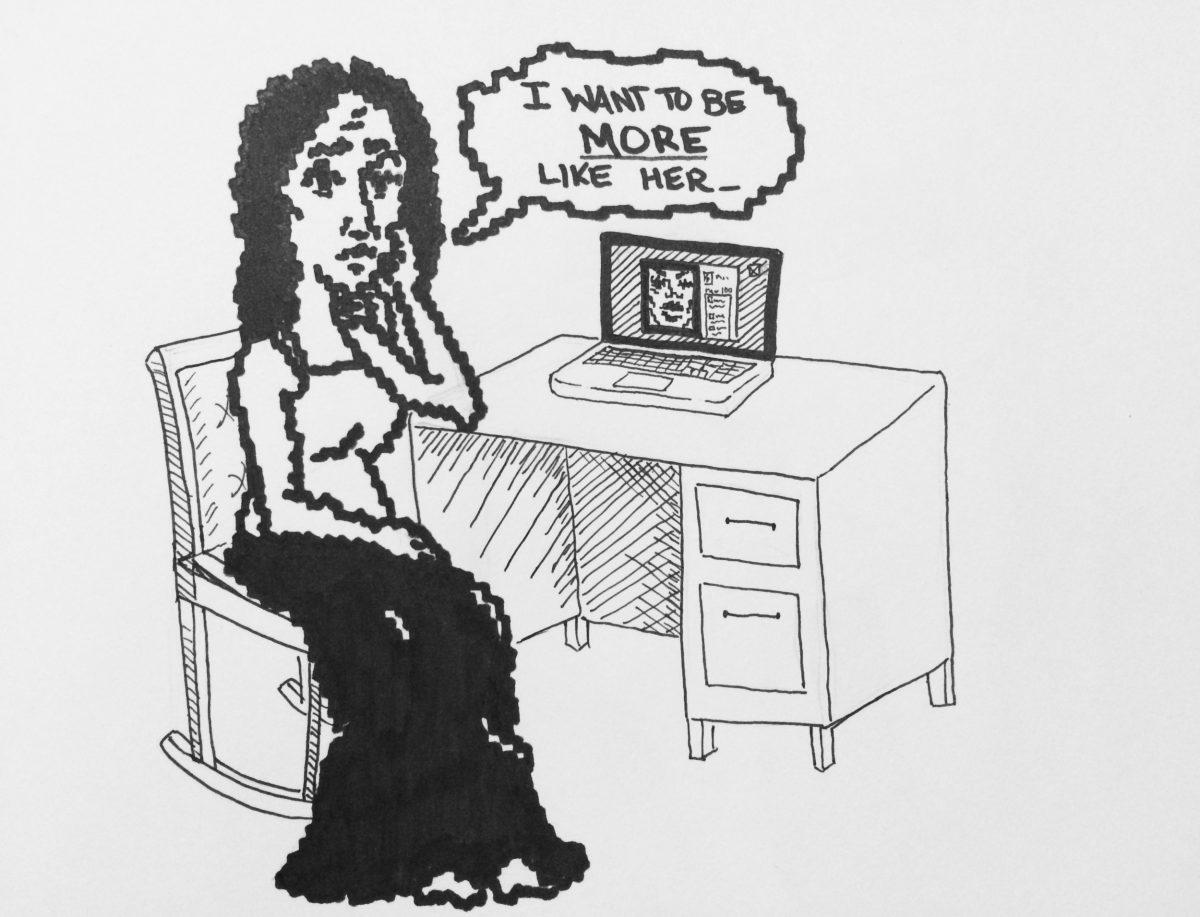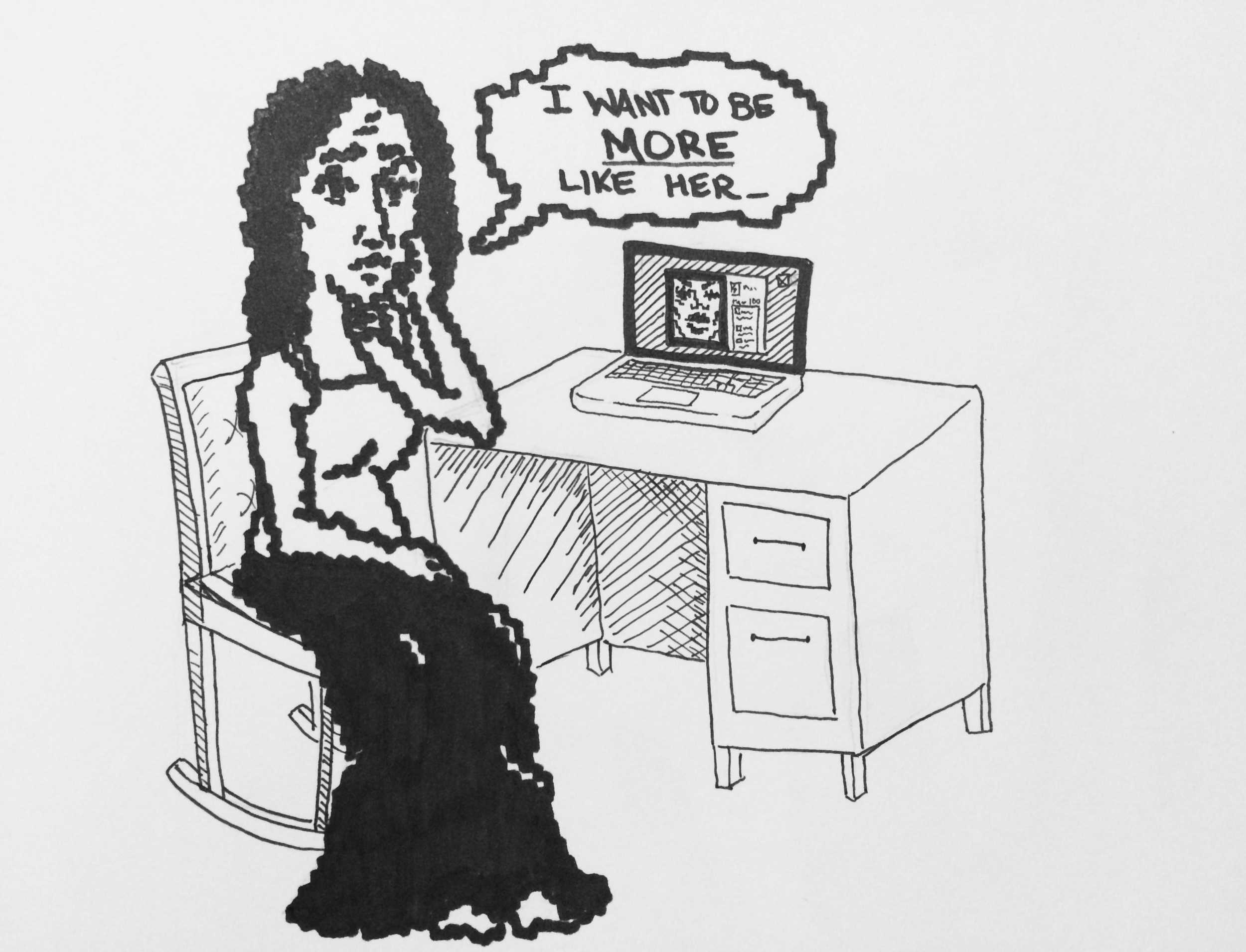Want to increase shame and anxiety about your body and decrease your self-confidence? Look no further than that website you hate to love, yet love to hate: Facebook.
A recent study by Florida State University indicated Facebook use was directly correlated with women’s tendencies to suffer from body image and appearance anxiety (see page 5). While it isn’t the first study to suggest a connection between social media use and eating disorders, it’s the first to show that spending just 20 minutes on Facebook directly reinforces women’s concerns about their bodies, increasing anxiety and contributing to the risk of eating disorders, according to Florida State University’s website.
College women who reported a higher risk of developing an eating disorder were more likely to compare themselves with their friends, place greater importance on “likes” and comments on their own pictures, and un-tag themselves from photos they deemed unattractive.
This conclusion is unfortunate, yet admittedly unsurprising: how can we expect people to feel good about themselves in the global popularity and beauty contest we call Facebook?
With the abundance of super skinny models and celebrities in traditional media, women really don’t need another source of pressure to slim down. It’s hard enough that anybody—regardless of age or gender—can’t turn on the TV, flip through a magazine, or watch a movie without finding and internalizing someone who seems significantly more attractive than they are (Ironically, many of these images of unattainably perfect bodies are paired with advertisements for irresistibly fatty foods—case in point: Carl’s Jr.—creating an impossible tug-of-war of emotions for the average media consumer).
The worst part? They all make it look so easy.
Fortunately, there has been a large increase of people—both males and females—advocating for more realistic portrayals of people—again, both males and females—in all types of media. The heavy use of photo editing models isn’t a secret, thanks to hundreds of leaked photos, investigative articles, and movements such as the Dove Real Beauty campaign.
But while it’s nice to know that those incredibly hot models on magazine covers and advertisements aren’t always as flawless as they look, chances are the average college student on Facebook doesn’t put him or herself under the Photoshop gun quite as intensely as professional models (Instagram filters are a different story). That means that, for many, the more “real” benchmarks for beauty aren’t living in Hollywood or New York—they’re in their own backyard.
When we spend hours looking at and comparing ourselves to other people’s photos and base our self-esteem on how many “likes” we got on our “selfies” and bikini shots, we lose sight of the very important fact that looks and body type aren’t everything. And even if they were, there’s no point in fixing what isn’t broken: regardless of how many people you come across whom you perceive are more attractive than you (frankly, there will be a lot), there are so many definitions of beauty—and barely anyone will fit perfectly into any of them.
For better or worse, social media are likely here to stay for a while. So keep in mind next time you Facebook stalk that, while comparisons to your friends may be inevitable, allowing your self-esteem, body image and eating habits to be negatively affected by your friends isn’t. Try not to pay too close attention to those arbitrary “likes,” and find what makes you beautiful outside the virtual world.

